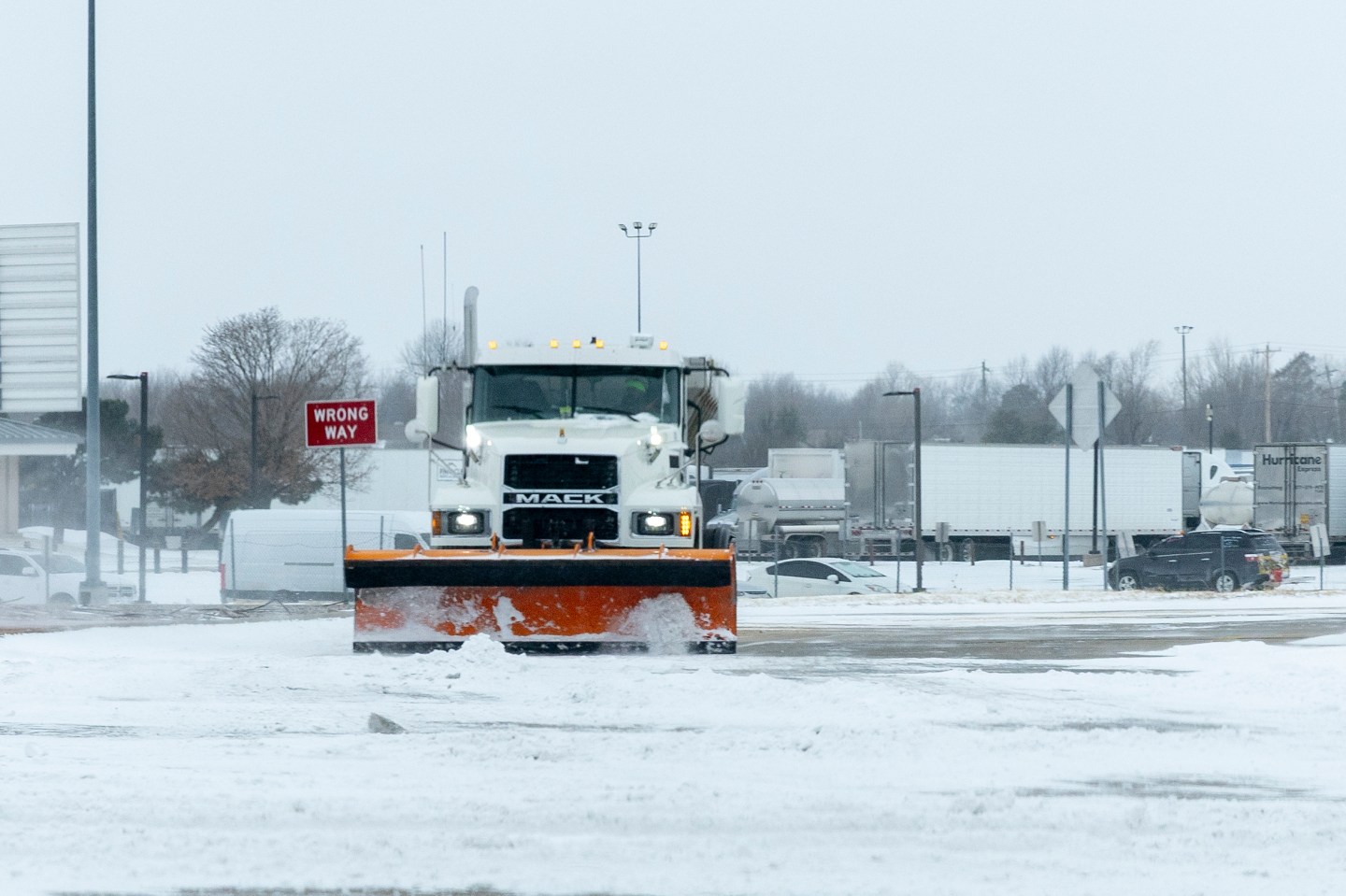We’ve all experienced that excruciating wait in a TSA line: tapping feet, wailing babies, and navigating mazes of stanchions. But if you’ve been to the airport the past couple of days, waiting in security lines is probably even worse than usual.
Take Houston’s George Bush Intercontinental Airport and Hobby Airport, which have seen TSA wait times exceed an agonizing three hours—and even up to four and a half hours in some cases. Travelers have missed flights, and TSA agents, who make an average of $26 an hour, are working without pay since the government shut down more than a month ago.
The debacle began because fewer TSA agents are working amid the government shutdown. This meant several security checkpoints were closed off, requiring all travelers to funnel through only two terminals; typically nine security checkpoints are open. Even TSA PreCheck areas—meant to expedite security for approved travelers—were packed. At some points, lines to get through security stretched out the door of Bush Airport, local Houston station KHOU 11 reported.
As for how long delays could continue, Jim Szczesniak, director of aviation for the Houston Airport System, said they could last as long as the government is shut down.
“The federal government shutdown has impacted TSA staffing and operations nationwide, and Houston Airports is doing everything possible to support our TSA partners and keep passengers moving safely and efficiently,” he said in a statement on Sunday. “We ask that passengers continue to arrive early and expect extended security wait times until the federal government shutdown is resolved.”
How the federal government shutdown affects air travel
The shutdown started a little over a month ago, on Oct. 1, when Congress failed to pass a funding bill to keep the government operating.
The shutdown affects air travel because federal workers, including TSA agents, air traffic controllers, and airport security personnel, have been furloughed, are working without pay, or have not shown up for work. With severe staffing shortages, TSA lines stretch longer, and flights get delayed or canceled.
Some airlines, such as United, Delta, American, and JetBlue, are even feeding TSA employees who continue to show up for work.
“United [Airlines] is donating meals for air traffic controllers and other federal workers whose pay is delayed,” the airline told CBS News. “We appreciate the hardworking federal employees who are keeping the air travel system running.”
Delta has also offered a limited number of meals for transportation workers, but is still operating “within the strict rules established for employees of federal government agencies.”
Even while going without pay, TSA agents aren’t allowed to strike because they’re federal workers. In 1981, 13,000 air traffic controllers went on strike following negotiations over pay and work schedules, but the Reagan administration fired 11,000 of them and barred them from ever working for the federal government again. Some TSA employees and air traffic controllers have simply not been showing up for work, but Transportation Secretary Sean Duffy has said he won’t fire them.
“They need support, they need money, they need a paycheck,” Duffy told CBS on Sunday. “They don’t need to be fired.”
Air traffic control shortages
Before the government shutdown, there was already a shortage of air traffic controllers—a problem that largely came to light after a major incident earlier this year. In January, there was a deadly midair collision near Reagan National Airport between an American Airlines passenger jet and an Army Black Hawk helicopter, killing 67 people.
A Federal Aviation Administration internal safety report revealed severe staffing shortages at the air traffic control tower: Just one controller was handling both the helicopter and the airplane communications simultaneously that night. This incident unveiled just how understaffed air traffic control has been, and the FAA is still short about 3,000 controllers. As of Nov. 1, the FAA said nearly half of major air traffic control facilities have staffing shortages as the government shutdown drags on.
Although air traffic controllers are paid relatively well at about $145,000 a year, it’s not an easy job to get—or keep.
“It takes a long time to train an air traffic controller,” former inspector general of the Department of Transportation, Mary Schiavo, told CNN earlier this year. “It’s very expensive. And about a third of them wash out because it’s very rigorous.”
Air traffic control is antiquated
And on top of all else, America’s air traffic control systems are critically outdated.
Secretary Duffy admitted earlier this year some of the decades-old equipment air traffic controllers use looks like it came off the set of Apollo 13, and compared it to a 1967 Volkswagen Beetle.
Meanwhile, Delta CEO Ed Bastian said it actually takes longer today to fly from Atlanta to LaGuardia in New York than it did in the 1950s, when the airline opened that route, owing to aging air traffic control systems.
“That’s the air traffic control system. It’s very slow. It’s congested,” Bastian told Today in May. “If you modernize the skies, you can kind of bring greater efficiency.”
And with the holiday travel rush fast approaching, travel delays are even more anxiety-inducing than ever. But there’s no real foresight on how long the government shutdown will last, and therefore, how long the air travel nightmare will continue.












